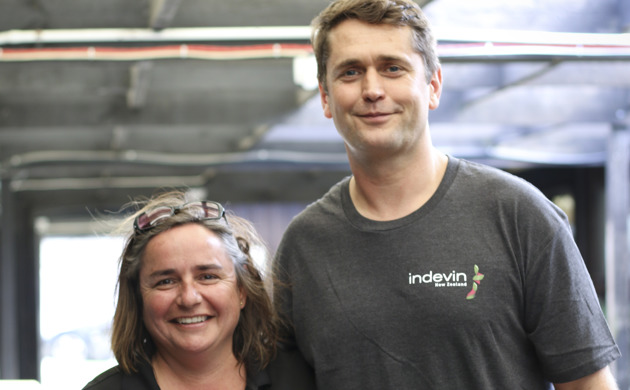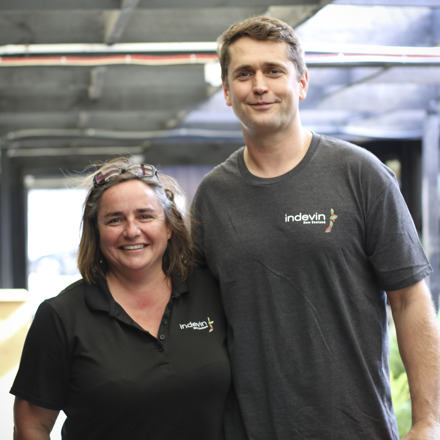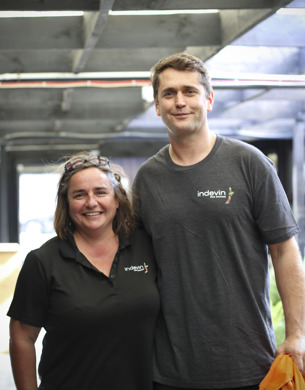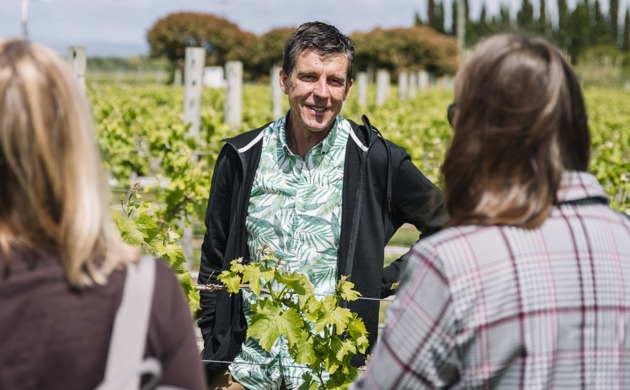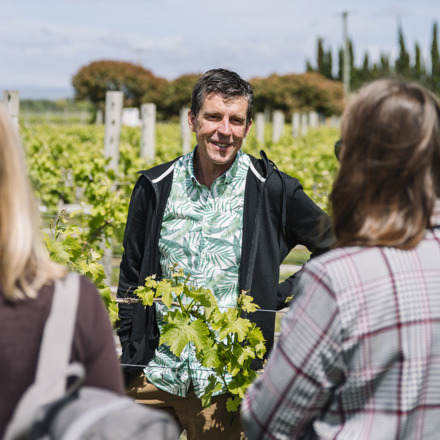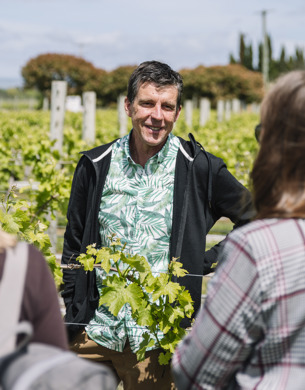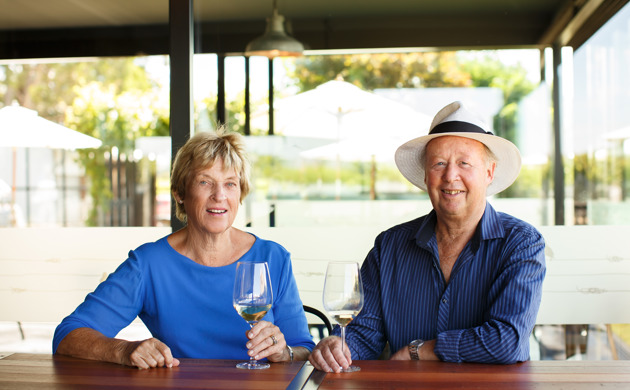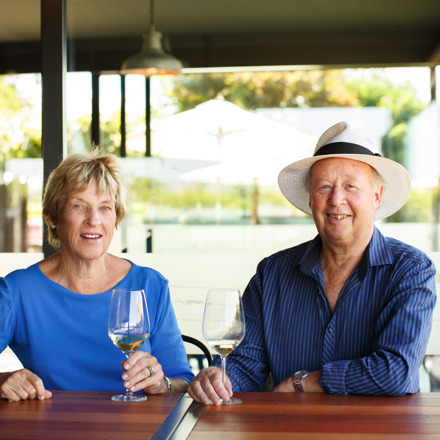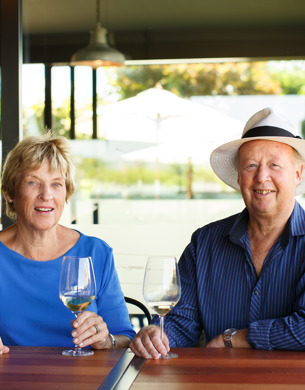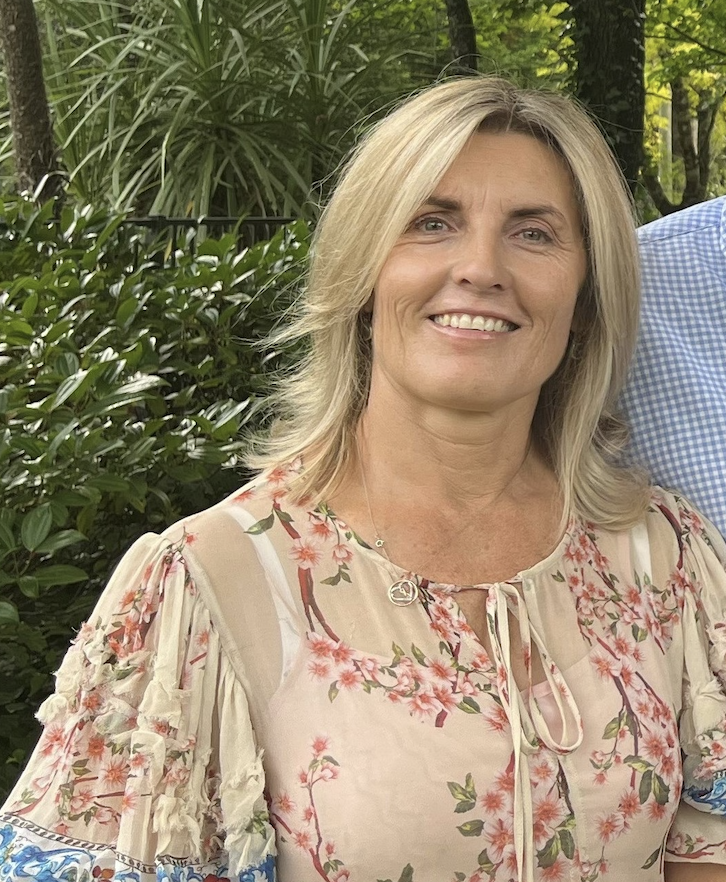
Tina says she loves her varied role in the wine industry. “I get to meet and spend time with growers, viticulturists, winemakers and vineyard workers. There are some truly generous people that are so willing to share their knowledge and experiences, the personal and professional growth I get to experience, sometimes daily, is immeasurable and valuable.”
"There are some truly generous people [in the wine industry] that are so willing to share their knowledge and experiences, the personal and professional growth I get to experience, sometimes daily, is immeasurable and valuable.”
How did it begin? Speaking from California as she visits vineyards and meets the wonderful people running them, Tina describes how she inadvertently fell into the wine industry to start with. “My working career had covered many years of farming (sheep, cattle, and deer) around the North Canterbury region, and a significant period working in the forestry industry including land development and farming in the Waipara area.” Then a farm Tina and her husband Nigel leased for grazing was sold to a wine company in the late-90s, for conversion into a vineyard. This segued them both into developing farming land into vineyards, from where an opportunity to purchase 12ha of land arose. Before long the pair were entrenched in the wine industry – where they’ve been ever since.
Tina’s wine industry experience reflects the vastness and variability of the industry itself. Speaking of how KLIMA – an innovative vineyard pruning system which Nigel and a friend of Nigel and Tina’s, Marcus Wickham, conceived, and for which Tina now wears several hats – originated: “We had been managing the New Zealand Vineyard Estates (Mud House and Waipara Hills) vineyards in the Waipara region since 2002 and the challenges of casual labour for vineyard tasks was a never-ending headache, especially during pruning,” says Tina. “Nigel and Marcus conceived a way to extract the waste canes from cane pruned vineyards by making the fruiting and trellis wires releasable and mulching up the waste canes.” There are now over 200 KLIMA working around the world.
Tina’s role with KLIMA is incredibly varied, “indistinct” in Tina’s own words. “I have a good understanding of the tasks involved in pruning and how hard it is in the vineyard, so I can easily relate to the pruners doing the hard yards every day. I’ve done many hours driving the KLIMA and have a good grasp of using it from the operator’s view. Administration falls to me, most of the tasks involved in allowing George Manufacturing (which owns KLIMA) and the team behind KLIMA to run smoothly land with me, and when time allows, I fly the flag for marketing too.” Tina adds that marketing is a smaller cog in the KLIMA wheel however, as the product tends to sell itself. The company has also been involved with the New Zealand Young Viticulturist of the Year competition since its inception – where Tina says it’s been encouraging seeing young women come through the ranks.
“For 15 years I worked within a team where I was the only woman. It was and sometimes still is, a male-dominated sector. I have learnt to never be afraid to show how brave you are, ask questions, ask for help, lead when you need to lead.”
Tina’s ample wine industry experience means she’s well-placed to talk to women in the wine industry. “For 15 years I worked within a team where I was the only woman. It was and sometimes still is, a male-dominated sector. I have learnt to never be afraid to show how brave you are, ask questions, ask for help, lead when you need to lead.” She adds that “mostly I have had good experiences with acceptance and respect and have grown so much as a person and especially as a woman. Respect is, in my experience, earned; by work hard, being respectful to your peers, being prepared to be knocked down sometimes, getting back up – usually with a smile, learning from it and moving forwards.”
As to the gender pay gap Tina says this is apparent when “women as a whole have to continually make sacrifices for family over career”. Her belief is that shining the light on this issue and being more transparent around pay rates is helping to close the gender pay gap.
Tina’s advice to other women considering a career in wine? “Do it, it is one of the most rewarding industries I have worked in. The New Zealand wine industry is unique. It works cohesively and each region shares information for the greater good of the industry – I have not seen that in many of the other countries I have worked in. The ability to work as a cohesive industry is giving New Zealand a competitive and economic edge over the rest of the world. We may be small but together we are mighty!”




